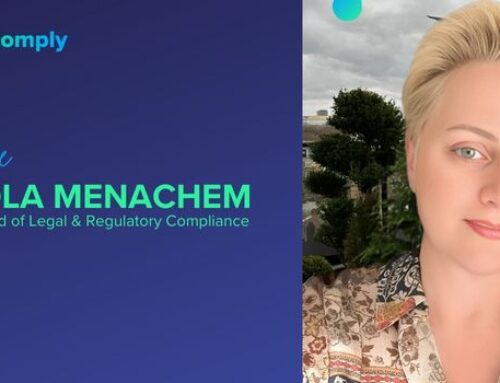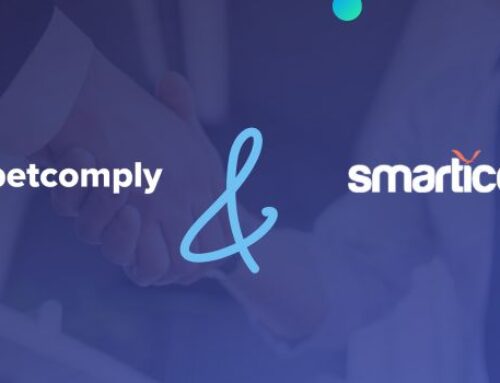BC: Can you describe your journey into the world of anti-money laundering and compliance? What inspired you to pursue this career?
EQ: I transitioned into compliance by chance after moving to Denmark from the Netherlands, where I was teaching children with behavioural issues. Unable to teach due to language barriers, I initially pursued customer service and translation roles while learning Danish. I joined BRAGG as a Customer Service Agent and discovered my aptitude for compliance during a training session on AML risks. My teaching background helped enhance my deduction skills in AML cases. Recognising my potential, the AML lead ‘stole’ me from the CS team. Through one of BRAGG’s customers, I had the pleasure of meeting Mike de Graaff, who trained me further in the finer points of AML. It was quite the career switch, but I really enjoyed working in compliance. When looking into opportunities to grow within the field, I contacted Mike to see if he knew someone in his network who would be hiring. Eventually, this resulted in me becoming a part of the BetComply team, where I continued to grow and learn from some of the best compliance specialists in the industry.
BC: What do you find most rewarding about your role as an MLRO?
EQ: I deal with some of the more intense AML cases where I sometimes go down the rabbit hole during my investigation. This often results in me finding cases of identity theft when uncovering a group of money launderers. One of those cases was an 82 year old woman. Being able to find and stop these things from happening is absolutely the most rewarding part of my job. Another part I find truly rewarding is when I find the link between different players who are laundering money, the smoking gun so to speak, that pieces it all together. Sometimes it can take hours of searching and scouring the internet for this missing piece. Occasionally I will be informed by the FIU that they have found more credible evidence because of my report and that action will be taken, which always feels like a small victory.
BC: What are some common misconceptions about AML that you would like to clarify?
EQ: Some people think that AML agents often don’t care about the player, simply the risk they pose to the casino or iGaming business. This is not true. Most AML agents work closely with the RG team to make sure that if they come across players who pose no AML risk but RG risks, they get the help they need. When AML and RG work together, they strengthen the business and have a higher success rate regarding addiction prevention and anti-money laundering.
BC: What skills do you believe are essential for someone working in AML and compliance?
EQ: An understanding of the way criminals tend to think and an inquisitive mind are needed. When creating an AML policy for iGaming businesses, you want to cover all your bases. Finding the different loopholes money launderers tend to use can be a challenge. Criminals can be creative, so you have to be even more creative to spot them.
Another essential skill is being able to turn confusing new regulations introduced by the gambling authorities into points of action. In essence, you translate confusing texts into manageable tasks. It’s a skill I am still working on as it remains challenging, but I have a good example in Mike de Graaff, who has truly mastered it.
BC: What advice would you give someone just starting their career in AML or compliance?
EQ: Don’t get overwhelmed by policies and regulations. They are often long and complicated texts but can be whittled down to simple action points. Also, don’t be scared to truly go down the rabbit hole during your investigation. It is better to be thorough than to miss essential evidence that could lead to the uncovering of money launderers.
BC: What’s a fun fact about yourself that most people don’t know?
EQ: I really love writing. Last year I wrote a book of about 800 pages because the story just wouldn’t get out of my head. I don’t plan on publishing anything as it’s just a fun hobby, although I do let friends and the occasional internet stranger read it.
BC:When you’re not working, what hobbies or activities do you enjoy?
EQ: Aside from writing, I really enjoy baking. I bake various things, from simple foods like waffles to multi-tiered wedding cakes. I often love surprising friends and neighbours with homemade goods, especially around the holidays when I tend to bake cookies every weekend. I love challenging myself with new recipes like profiteroles, which aren’t the easiest to make. The next challenge is a croquembouche!
BC: If you could travel anywhere in the world right now, where would you go and what would you do there?
EQ: I have a long list of places I want to visit as I love to travel. At the top of my list is going on a safari in Africa. There is something so exciting and breathtaking about seeing animals, especially the big five, in the wild. When I travelled around Canada, I had the good fortune of seeing many animals in the wild, including bears, moose and wolves. Seeing them in their natural habitat is something that can’t be beat in my opinion.
BC: If you could instantly learn one new skill or hobby, what would it be?
EQ: A realistic skill would be learning to speak a new language as it opens up a new world. My preference would be Italian as I go skiing in Italy every year.
An unrealistic skill would be the ability to teleport, which would make traveling so much easier! And I could visit my family in The Netherlands without spending a fortune on plane tickets.
BC: What’s the best piece of advice you’ve ever received, and how has it influenced your life?
EQ: Everyone makes mistakes; that is just a fact of life. There is no point in stressing over mistakes you or someone else has made as you can’t change the past. Learn from them and move forward. The way you handle mistakes can change your outlook on life. Tearing yourself down internally for making a mistake will cause you undue stress and stop you from learning how to prevent it in the future. It’s also important to keep this in mind when training someone. If you correct someone’s mistakes harshly, they will fear you and will likely not come to you for help, increasing the chance of them making mistakes. If you instead give constructive feedback kindly, it will provide people with the confidence to ask questions and learn from their mistakes. I used to do this as a teacher and still do when training others these days.




